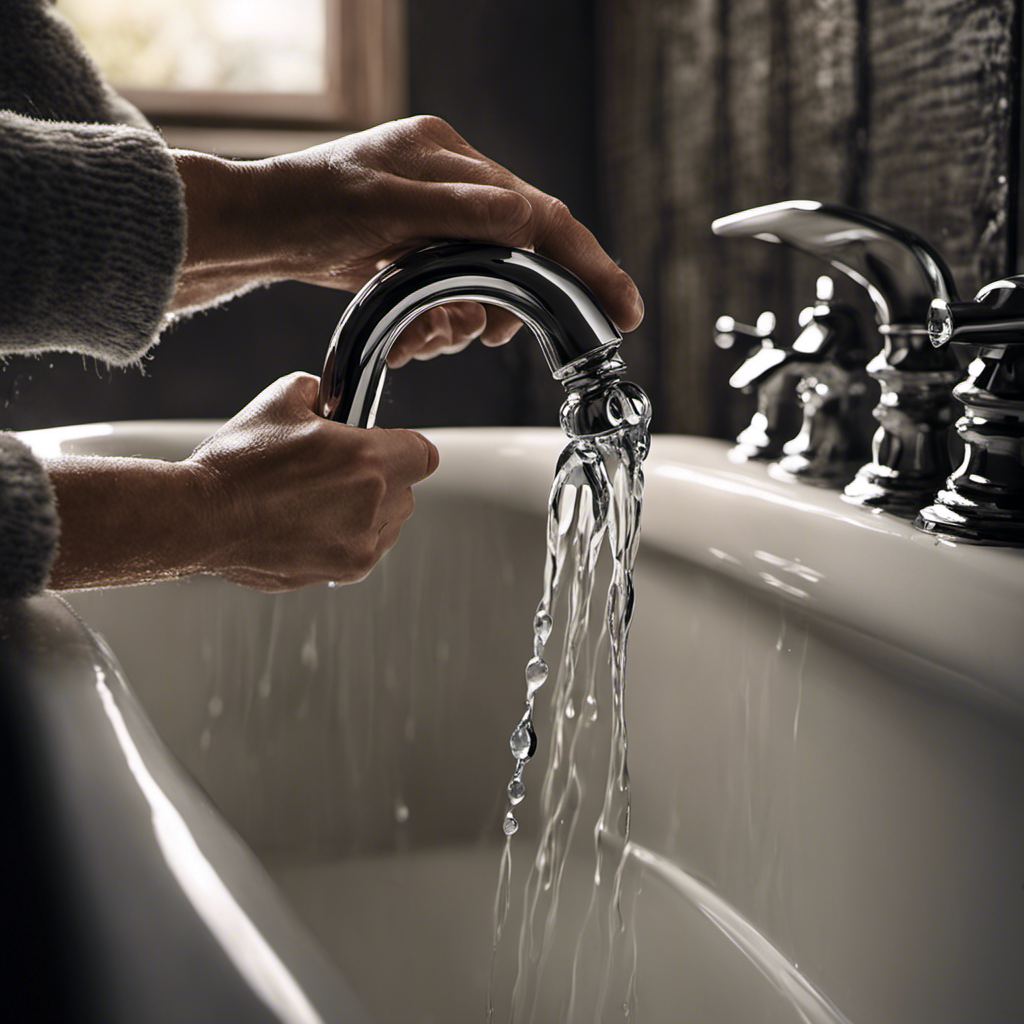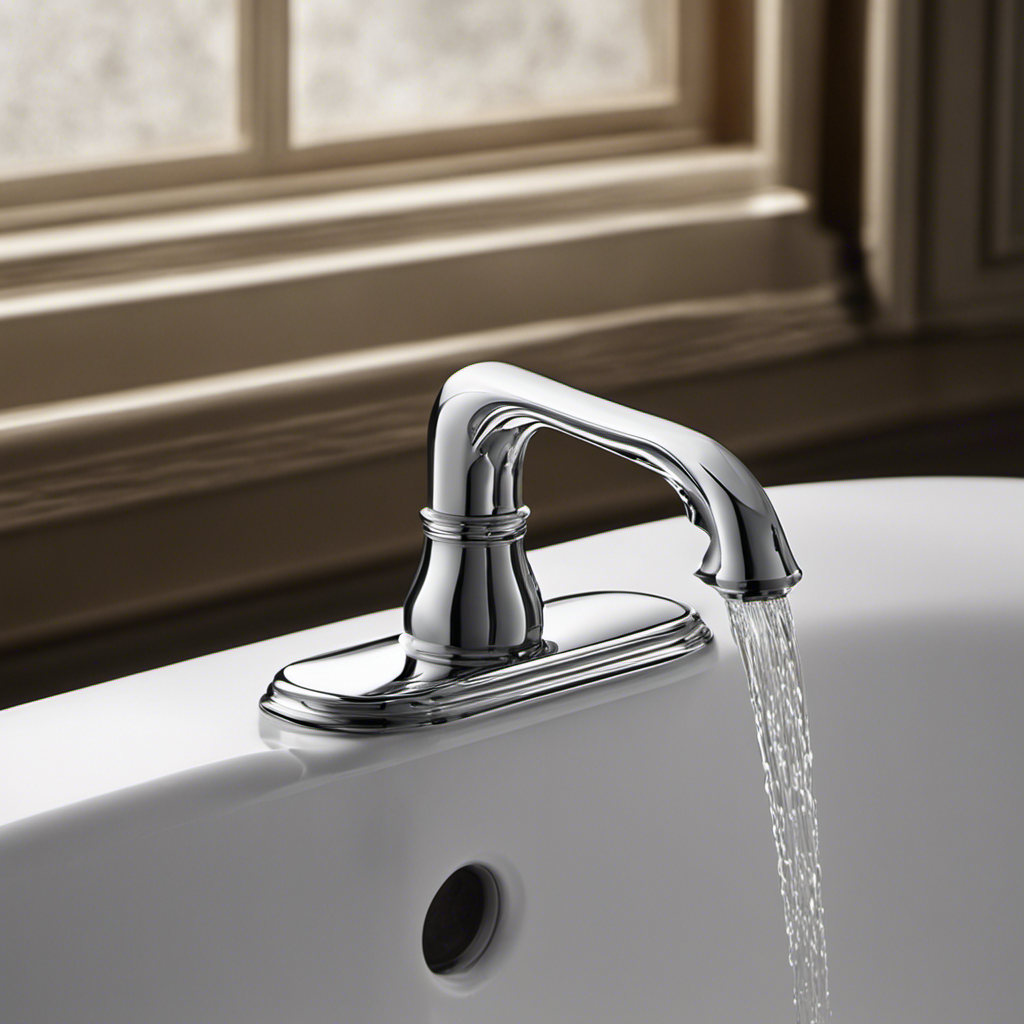Have you ever wondered what really happens if we flush stuff down the toilet? Well, brace yourselves, because we’re about to unveil the shocking truth.
When we send things down the porcelain throne, we unknowingly set in motion a series of events that can wreak havoc on our plumbing systems, the environment, water treatment facilities, personal safety, and even our wallets.
It’s time to dive into the consequences and discover why we should think twice before hitting that flush button.
Key Takeaways
- Flushing inappropriate items can cause clogs and damage to pipes, leading to expensive repairs and the need for professional assistance.
- Improper disposal of non-biodegradable items can result in water pollution, harming marine life and disrupting ecosystems.
- Flushing non-biodegradable items can damage water treatment facilities, increasing energy consumption and reducing efficiency.
- Improper waste management through flushing can pose risks to public health, as microorganisms in sewage can contaminate water sources and spread diseases.
Impact on Plumbing Systems
Flushing inappropriate items down the toilet can cause significant damage to our plumbing systems, clogging pipes and leading to costly repairs. When items like wipes, sanitary products, or excessive amounts of toilet paper are flushed down the toilet, they can create blockages in the pipes. These blockages restrict the flow of water, causing backups and clogging issues. As a result, the pressure in the plumbing system increases, potentially leading to burst pipes or leaks.
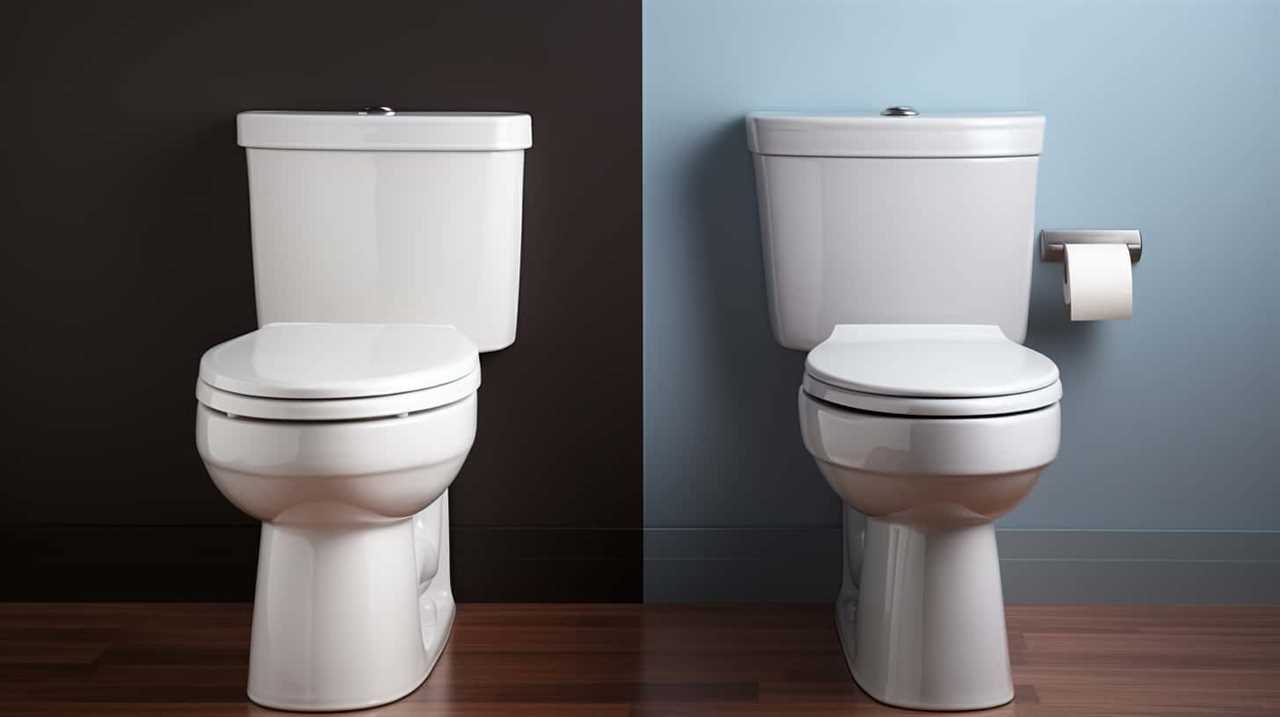
Fixing these plumbing issues can be expensive, requiring professional assistance and costly repairs. It’s crucial to understand that our plumbing systems are designed to handle only human waste and toilet paper. By adhering to these guidelines, we can avoid the inconvenience and financial burden of dealing with clogging issues and costly repairs.
Moreover, improper disposal of items in the toilet can have severe environmental consequences.
Environmental Consequences
By improperly disposing of items in the toilet, we risk causing severe environmental consequences.
One of the main concerns is water pollution. When non-biodegradable items such as plastics, wipes, or chemicals are flushed, they can end up in our waterways, contaminating the water supply and harming aquatic life. These pollutants can take years to break down, persisting in the environment and causing long-term damage.

Additionally, flushing medications down the toilet can introduce harmful substances into the water, affecting the health of both humans and wildlife.
Another consequence is ecosystem disruption. The introduction of foreign substances can disrupt the balance of ecosystems, leading to the decline of certain species and the proliferation of others.
It’s crucial to properly dispose of items to protect our water resources and preserve the delicate balance of our ecosystems.
Effects on Water Treatment Facilities
Improperly disposing of items in the toilet can have significant effects on water treatment facilities. Here are four key ways that this can impact these facilities:
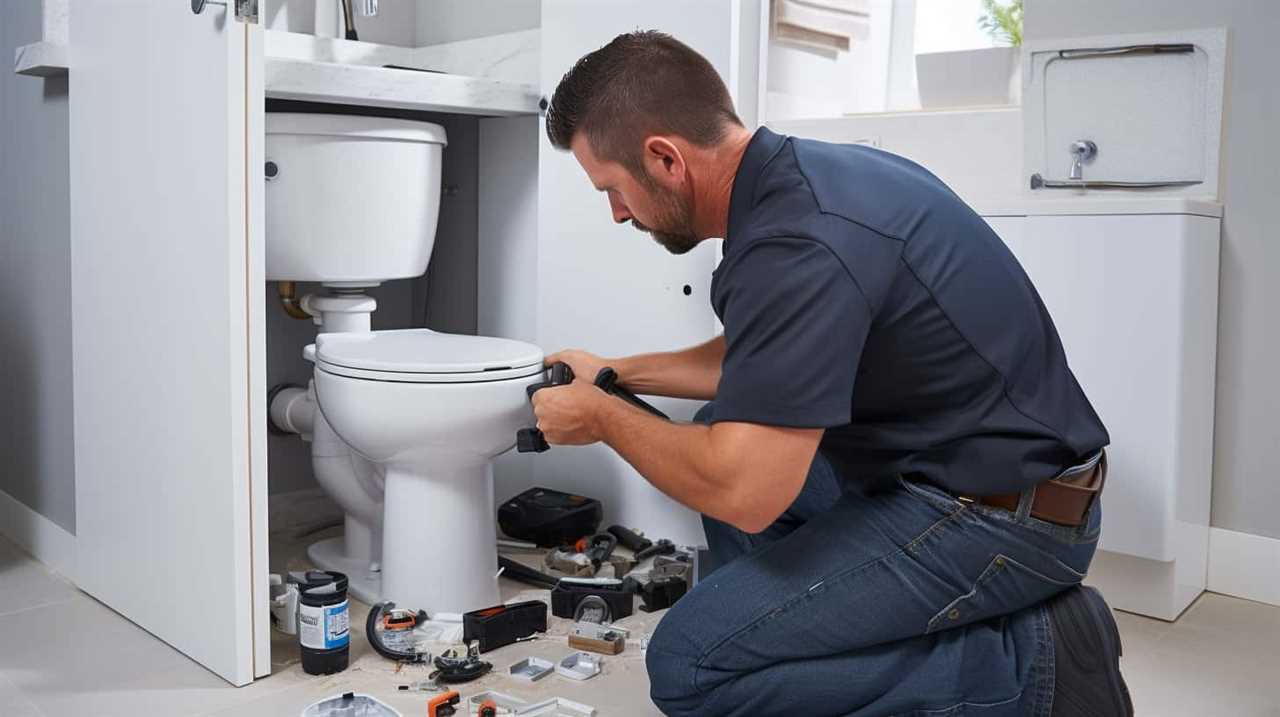
- Increased energy consumption: Flushing non-biodegradable items like plastics or metals can cause blockages in pipes and equipment, leading to increased energy usage to clear these obstructions.
- Damage to infrastructure: Items that don’t break down easily can damage the pumps and filters within the treatment facilities, resulting in costly repairs and maintenance.
- Decreased efficiency: When non-flushable items enter the system, it can disrupt the treatment process, reducing the overall efficiency of the facility and potentially leading to higher operational costs.
- Risk of microbial contamination: Flushing items such as medications or chemicals can introduce harmful substances into the water supply, potentially compromising the safety of the treated water.
Understanding the consequences of improper flushing is essential for maintaining the functionality and effectiveness of water treatment facilities.
Now, let’s move on to discuss the risks to personal safety.
Risks to Personal Safety
When items are improperly disposed of in the toilet, it poses a risk to our personal safety. Not only can it lead to health hazards, but it can also cause potential damage to our plumbing systems. Flushing items such as medication, chemicals, or sharp objects can contaminate our water supply and harm both humans and the environment.
Medications can interfere with the water treatment process and end up in our drinking water, posing a risk to our health. Chemicals can cause corrosion in the pipes, leading to leaks or burst pipes, which can be costly to repair. Additionally, flushing sharp objects like needles can cause injuries to sewage workers during the disposal process.
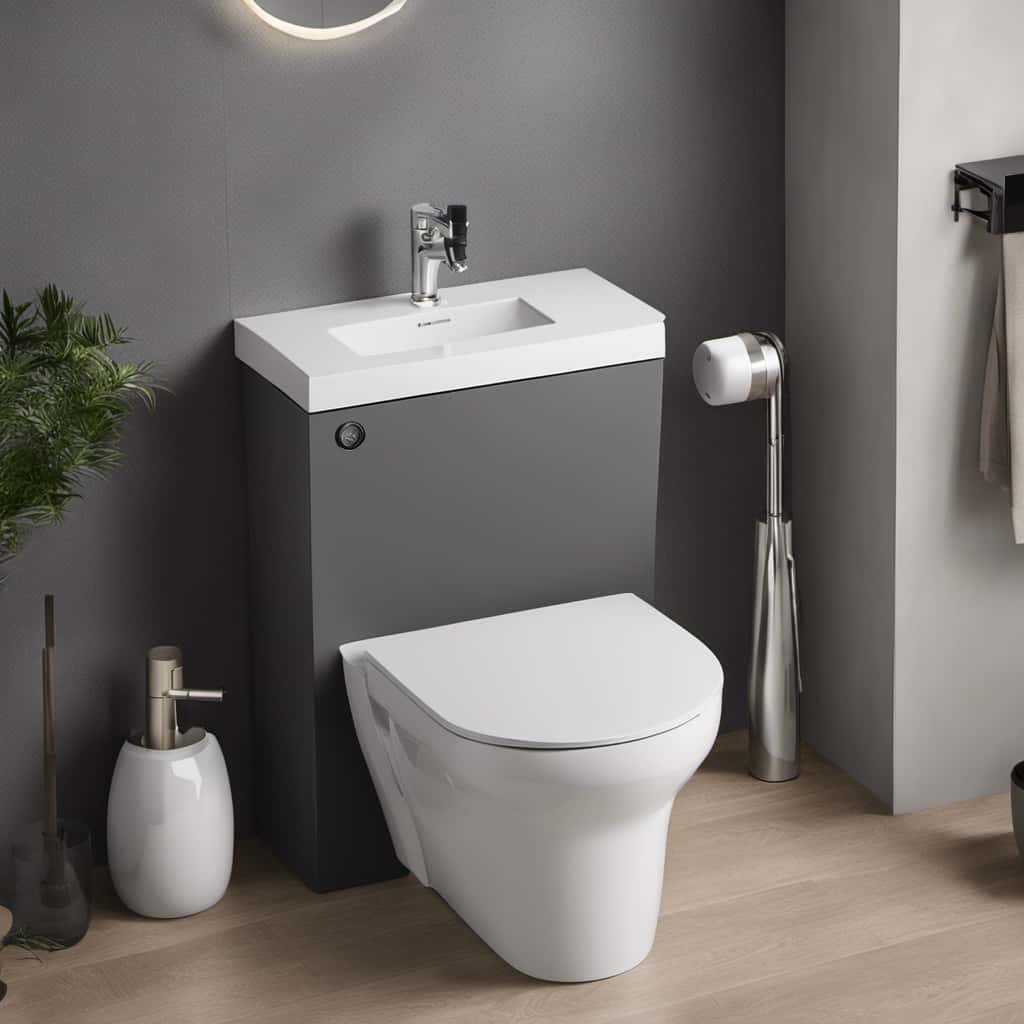
Therefore, it’s crucial to properly dispose of items in designated waste containers to ensure our personal safety and prevent any further damage to our plumbing systems. Understanding the risks associated with improper disposal will help us avoid legal and financial consequences.
Legal and Financial Consequences
To avoid facing legal and financial consequences, it’s important that we regularly dispose of items in the designated waste containers instead of flushing them down the toilet. Flushing items that aren’t meant to be flushed can lead to serious repercussions, including lawsuits and fines.
Here are four reasons why flushing items down the toilet can result in legal and financial trouble:
- Environmental damage: Flushing certain items can harm the environment, leading to potential legal action and fines for violating environmental regulations.
- Plumbing system damage: Flushing non-flushable items can cause blockages and damage to the plumbing system, resulting in costly repairs and potential liability for property damage.
- Municipal fines: Many municipalities have strict regulations regarding what can be flushed, and violating these regulations can result in fines.
- Wastewater treatment issues: Flushing inappropriate items can disrupt the wastewater treatment process, leading to increased costs for treatment and potential penalties.
Frequently Asked Questions
Are There Any Items That Are Safe to Flush Down the Toilet?
Safe alternatives and biodegradable options exist for flushing down the toilet. However, it is important to note that flushing anything other than toilet paper and human waste can lead to plumbing issues and environmental harm.
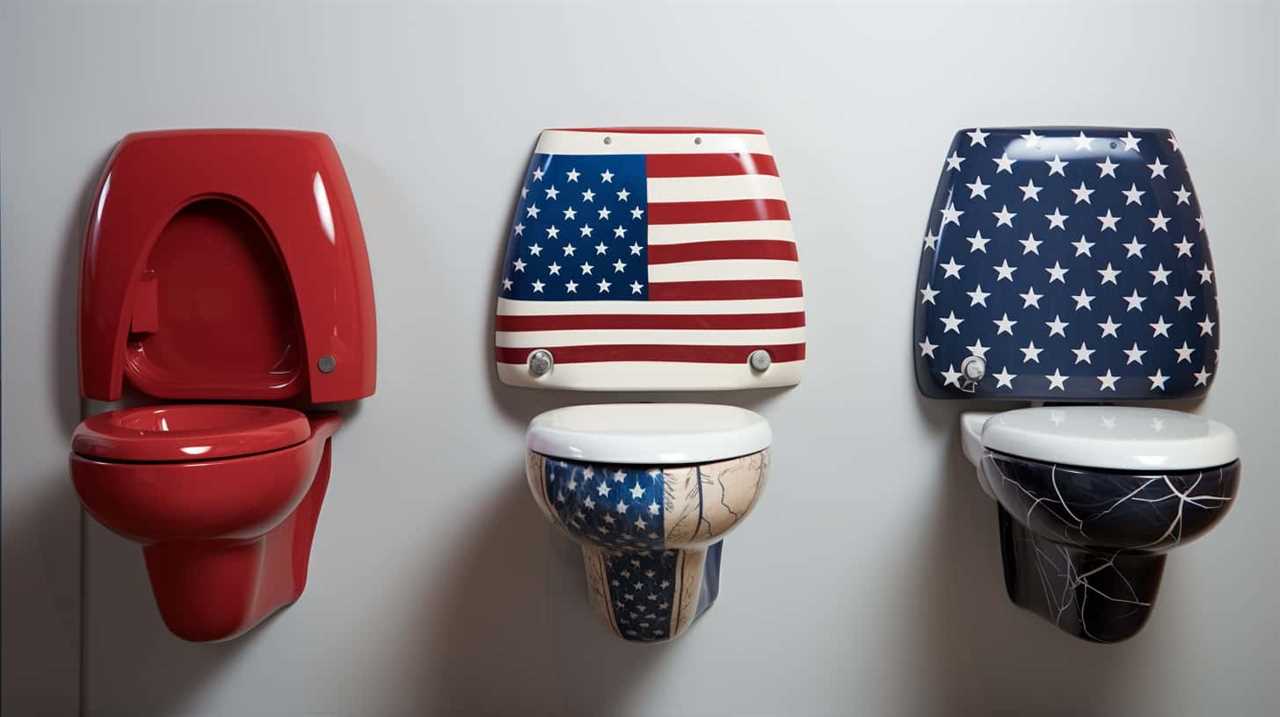
Can Flushing Non-Flushable Items Down the Toilet Cause Clogs in the Sewer System?
Flushing non-flushable items down the toilet poses significant risks to the sewer system. The consequences of flushing paper towels and baby wipes include clogs, blockages, and potential damage to pipes and wastewater treatment facilities.
Is It True That Flushing Medications Down the Toilet Is Harmful to the Environment?
Oh boy, let’s talk about the harmful effects of flushing medications down the toilet. Not only does it wreak havoc on water quality, but it also has a disastrous impact on the environment. Just don’t do it, folks.
What Steps Can Be Taken to Prevent Clogs and Damage to Plumbing Systems Caused by Flushing Improper Items?
Preventive measures and maintenance techniques can help avoid clogs and plumbing damage caused by flushing improper items. Regularly educating ourselves about what can and cannot be flushed is essential for maintaining a well-functioning plumbing system.
Are There Any Alternative Methods for Disposing of Items That Should Not Be Flushed Down the Toilet?
Toilet alternatives for proper disposal methods include using designated waste bins or recycling centers. Flushing items down the toilet can lead to clogs and damage to plumbing systems, so it’s important to explore more appropriate methods.
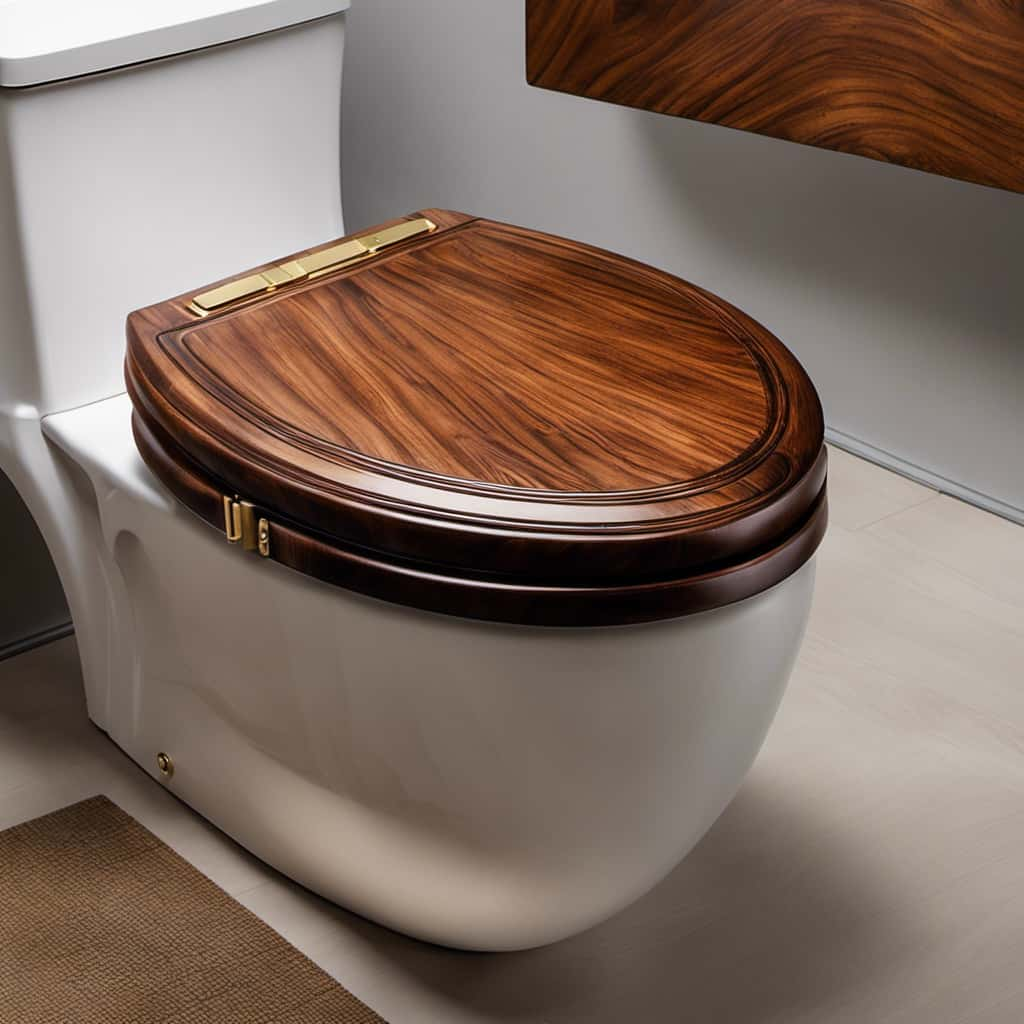
Conclusion
In conclusion, flushing items down the toilet can have serious consequences.
It can clog and damage plumbing systems, harm the environment, and pose risks to personal safety. Additionally, it can strain water treatment facilities, leading to potential contamination issues.
Moreover, individuals may face legal and financial consequences for improper disposal. So, next time you think about flushing something other than toilet paper, remember the tangled mess and polluted waters that await.



